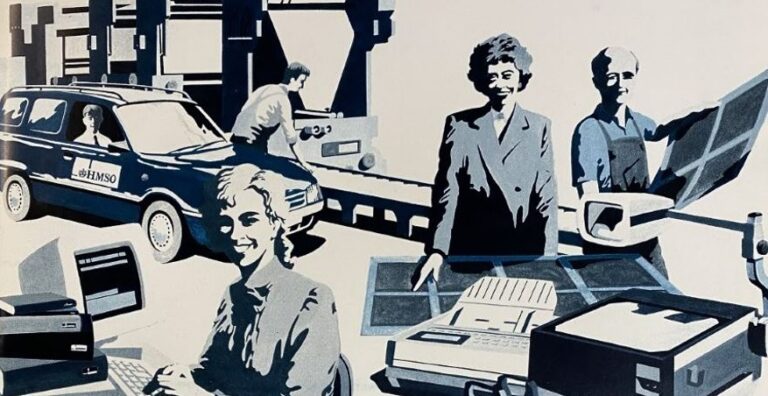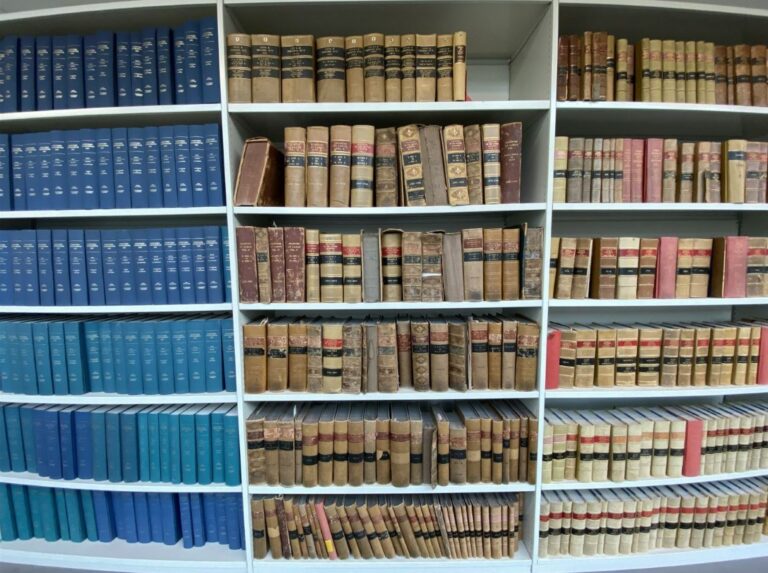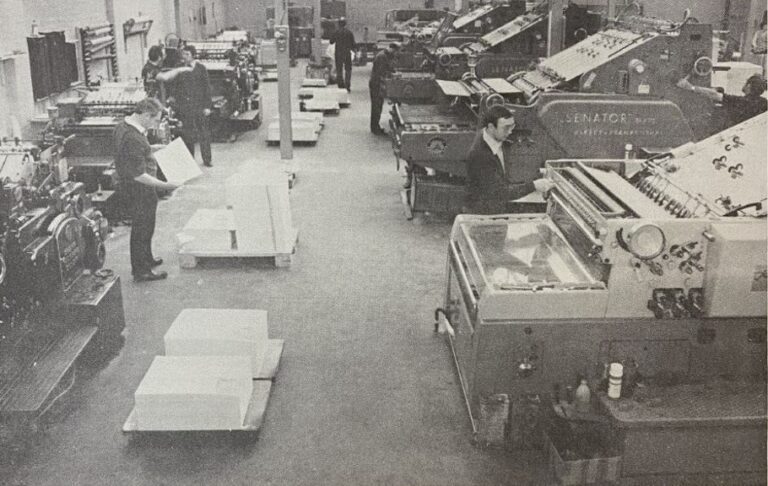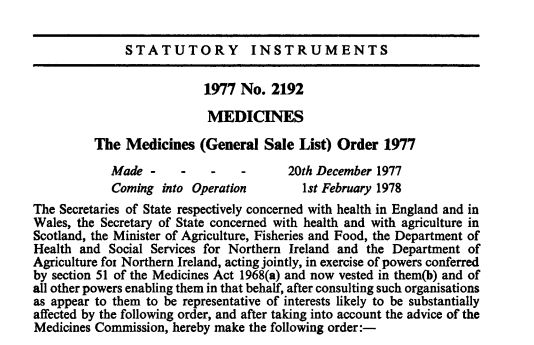In late November 2023, we uploaded to legislation.gov.uk the first batch of 7,000 items of historical legislation digitised from the Controller’s Library. The Controller’s Library was the archive of material printed on behalf of the former government publisher HM Stationery Office (and its successor company, The Stationery Office).

The items we have uploaded in this first batch are all statutory instruments from the 1960s to the early 1990s. One example is The Medicines (General Sale List) Order 1977, which specified the list of medicines permitted for over-the-counter sale for the following year.
In the coming months, the first 7,000 items will be joined by tens of thousands of historical Acts of Parliament, also digitised from the Controller’s Library. This project brings us closer to our goal of offering a complete copy of the UK statute book that is freely available online for everyone to read and reuse.
Many are surprised legislation.gov.uk does not hold a complete collection of UK legislation, even for that in force today. In this blog post I’ll explain why there are gaps in the set of legislation we hold in electronic form and what we’re doing to make it whole.
Where does our legislation come from?
The National Archives’ Legislation Services team arranges for new legislation to be printed and published online on legislation.gov.uk. We publish both original versions of legislation, that is the texts as they were originally printed, and revised versions, which incorporate amendments to the text made later.

Although Parliament and the devolved legislatures hold copies of the Acts they have passed, and The National Archives holds copies of secondary legislation made under those Acts, much of this legislation only exists on paper (as individual copies or printed within compilations). This is because it was printed before the digital publication of UK legislation began in 1987.
In 1988, HM Stationery Office moved to a digital publication process for printing Acts of Parliament, which they had already started to use in 1987 to print most UK secondary legislation. In 1996, they extended that process to the printing of Northern Ireland secondary legislation. These items of legislation were ‘born digital’ – that is, they were created as electronic documents before being printed – and so it was possible to convert them into the electronic format used by legislation.gov.uk today.
As a result, legislation.gov.uk has a complete set of Acts and statutory instruments from 1996 onwards, and holds most of the ones printed between 1987 and 1995. But, for legislation printed before this time, we must acquire a digital copy before we can publish it online.
Acquiring pre-digital legislation
To add pre-digital legislation to our collection on legislation.gov.uk, we must first make a digital copy. We do this either by imaging the document using a scanner or camera, or by ‘rekeying’ (typing the entire item of legislation out by hand, or correcting text produced from optical character recognition of the pages). Both these processes are expensive and take a lot of time and effort.
We normally use destructive imaging to make scanned copies of legislation, where we cut the spines off books of legislation and feed their pages through the scanner automatically, as it is much quicker and cheaper than any other method. Non-destructive imaging is 10 times the cost and a 10th of the speed, and rekeying is 100 times the cost and takes 2,000 times as long. However, we must acquire an extra copy of any legislation before we scan it destructively, as we can’t damage the copies held in the Archives.
We’ve acquired electronic copies of pre-digital legislation through various scanning and rekeying projects, as well as donations of digitised material. For example, our initial collection of revised legislation was rekeyed from Statutes in Force, and most of our pre-1987 secondary legislation comes from a donation from Westlaw.

The Controller’s Library, and future digitisation
In 2021, we had an opportunity to digitise the contents of the Controller’s Library, as the warehouse storing it was to close. The Library held copies of much of the legislation printed for HM Stationery Office, including many Acts and statutory instruments.
So far we’ve scanned over 2.7 million pages of text from books and loose documents in the Library, and we’re extracting individual legislation items from that set through a mixture of automation and human review, with over 230,000 items identified so far.
The digitisation of the Controller’s Library is the first step in making the legislation within it available to the public. We know that scanned PDFs are not accessible to all users, and are working to provide these items in other formats that are readable using assistive technologies.
We’re always interested in acquiring legislation in electronic format to fill the gaps in our collection, particularly Acts printed before 1800 and local statutory instruments. If you have electronic copies of historic UK legislation, or printed copies you can help us to digitise, please do get in touch.
Pip Arnott is a Senior Legal Editor in the Legislation Services team at the National Archives, specialising in the processing and publication of legislation data.

But does it have Scottish legislation?.
We believe (as we haven’t yet checked all of the approximately 2,800 scanned volumes) that the Controller’s Library only contained Acts passed by the parliaments of England, Great Britain and the United Kingdom, as well as statutory instruments made under those Acts. Some of those Acts and instruments will relate specifically to Scotland. However, we haven’t identified any Acts in the Library that were enacted by the old Parliament of Scotland.